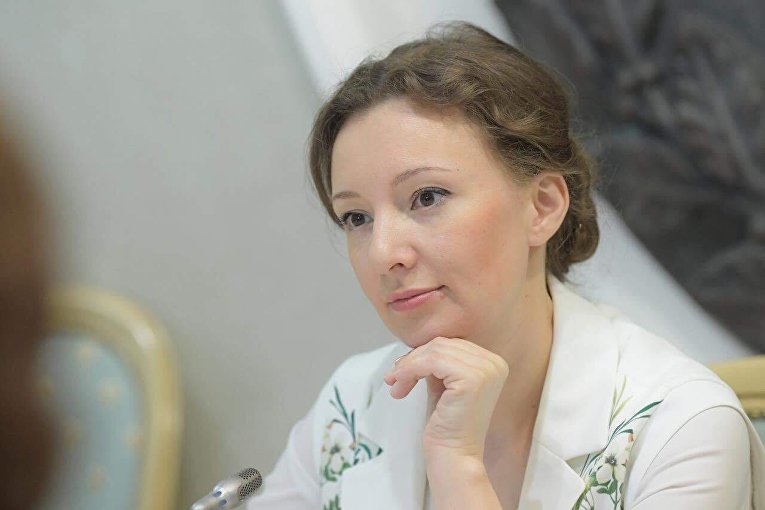MOSCOW, August 2 (RAPSI) – Anna Kuznetsova, Russia's children's rights commissioner, expressed her sentiment with regard to a Decade of Childhood program proclaimed by an executive order signed by President Putin in May.
Happiness of children, Kuznetsova says, is happiness of the whole world, a country, a family, and all of us need to remember the words of a hero from a Dostoyevsky’s novel that even higher harmony is not worth a tear of a child.
Therefore, the ombudsman asserts, the aim of the Decade of Childhood in Russia is happiness of children and of the country on the whole, what seems of course to be all too enormous and impossible task.
Addressing the participants of the Russian Educational Youth Forum “Terra Scientia,” she called the audience nevertheless not to be afraid of so a monumental challenge, saying that if a task was too ambitious to be accomplished as a whole, it could be coped with when dissected into smaller problems.
According to the Presidential executive order, the main purpose of the Decade of Childhood program to be implemented in the 2018 – 2027 period as a follow-up of the 2012 – 2017 National Children’s Interests Action Strategy is to streamline state policy in the area of childhood protection, Kuznetsova says. When meeting with the President Putin on May 31, the Rights Commissioner asked him to facilitate a broad public discussion of the project so everyone could contribute into its fulfillment and so all shades of opinion and all constructive proposals could be taken into account.
However, Kuznetsova notes, three main rules need to be adhered to when shaping the program: policy consistency, feasibility, and tangibility of its results.
Yet another advice the Rights Commissioner says she addressed the “Terra Scientia” forum was to be among the first to initiate the discussion following the example set by the Ombudsman Office, which has already started to collect proposals generated by its various central and regional bodies, as well as activists. According to Kuznetsova, more than 30 proposals submitted by local children’s rights commissioners have been incorporated in a preliminary plan of measures to be implemented in the framework of the program.
An important thing, the ombudsman notes, is that many proposed measures are problem-specific across the categories of affected children ranging from those in multi-child families to students and preschoolers, from children with limited health capacities to teenagers, orphans, and young offenders.
At the same time, there are proposals aimed to improve lives of all children, like making summer holidays affordable for any child notwithstanding his or her social status, or that of his or her parents, as well as those aimed at the next generations seeking to prevent conflicts and misery in families only to be formed in the future, like organization of courses teaching children the basics of family life.
The Rights Commissioner stresses that to be a success the Decade of Childhood program needs to become not only a governmental effort, but also a truly public project setting priorities for all citizens, and its primary goal is to settle as many problems as possible before they could be faced by future generations.



